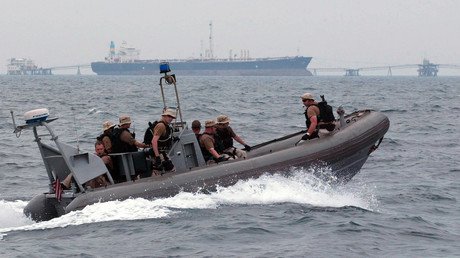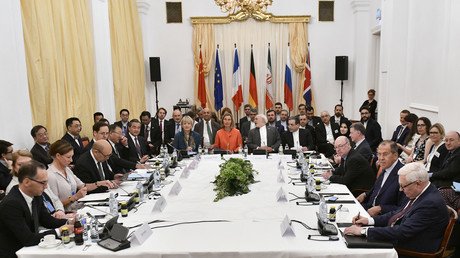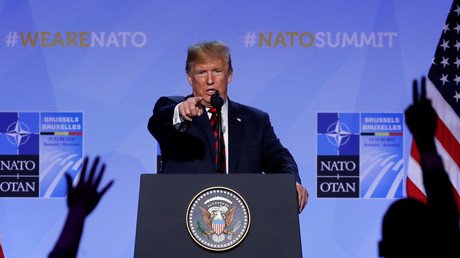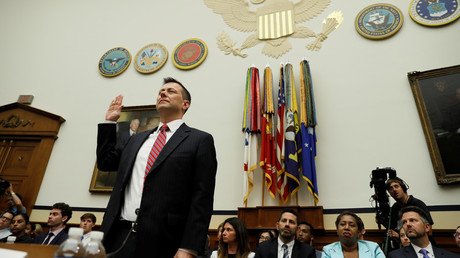US proxies in Syria failed, direct NATO action will end in shame – Iran’s top adviser
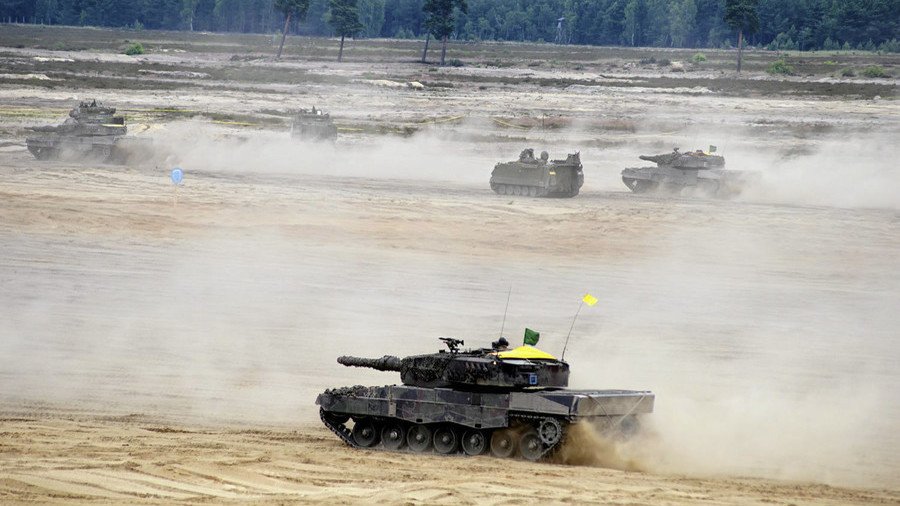
Should NATO try to get directly involved in Syria, it will end in failure on the scale of the Vietnam war, says the senior foreign policy advisor to Iran's supreme leader. Any engagement in the region would be a "swamp," he said.
A NATO task force is "ready to deploy on short notice" as part of the alliance's commitment to support Turkey against "the growing security challenges from the south," a Wednesday joint statement by the bloc leaders said.
Supreme Leader Ali Khamenei's senior foreign policy adviser believes it means NATO is preparing for direct involvement in Syria – one that is bound to fail spectacularly.
"These dreams of NATO and its head Mr [US President Donald] Trump will never be realized," said Ali Akbar Velayati, who served as the Iranian foreign minister in the 1980-90s. He was speaking at the Valdai Discussion Club in Russia.
"Trump and his NATO agents tried [to use] trained terrorists to overthrow the Syrian government, and that operation failed. They now want to put their forces on the border between Turkey and Syria and fight directly. They couldn't overthrow Bashar Assad's government with provocations, and they won't be able to do it through direct involvement," he added.
Velayati believes NATO is testing the waters, seeing how far they can push Russia, who has been active in the region, assisting Assad against terrorist groups in Syria.
"They want to run some kind of test, to see if NATO can go to a scene where Russia is present, and do something there. The next step could be Ukraine," he said.
He went on to compare any potential involvement in Syria to the Vietnam war, an almost 20-year-long conflict where the US invaded Vietnam to overthrow the communist forces there, and was ultimately defeated despite military superiority.
"NATO should know that their presence in the region would be the presence in a bog, and there's no way to get out of that bog except through shame. If they don't believe that, let them come and see," Velayati said.
US ‘unworthy of negotiations’
Iran has been antagonized by the US over the presence of its military advisers assisting the Syrian government in the seven-year-long conflict. Ending its involvement is one of the demands Washington has voiced for renewing talks on the agonizing 2015 nuclear deal between Iran and the West – but it's not something Iran is willing to bargain over.
"We didn't ask the US for permission to go into Syria, and their threats won't make us leave. Our presence in Syria and Iraq is due to requests from those countries' legitimate rulers," Velayati said.
After Trump's withdrawal from the nuclear deal Tehran sees no sense in talking to him.
"We don't want to negotiate with the Americans. We don't need it. We don't think this administration, Mr Trump and his representatives, are worthy of talking to. Those people violate the Iran-related commitments established by the UN Security Council, they can't be trusted," Velayati said.
He added: “Why should we talk to them? So they can make unfounded statements, and then issue propaganda claims that they tried to talk to Iran?"
Iran and the remaining signatories of the deal – the UK, France, Germany, Russia, China and the EU – have been working hard to salvage the agreement after Washington's withdrawal. All parties are prepared to go the distance without the US, Russian Foreign Minister Sergey Lavorv recently said.
